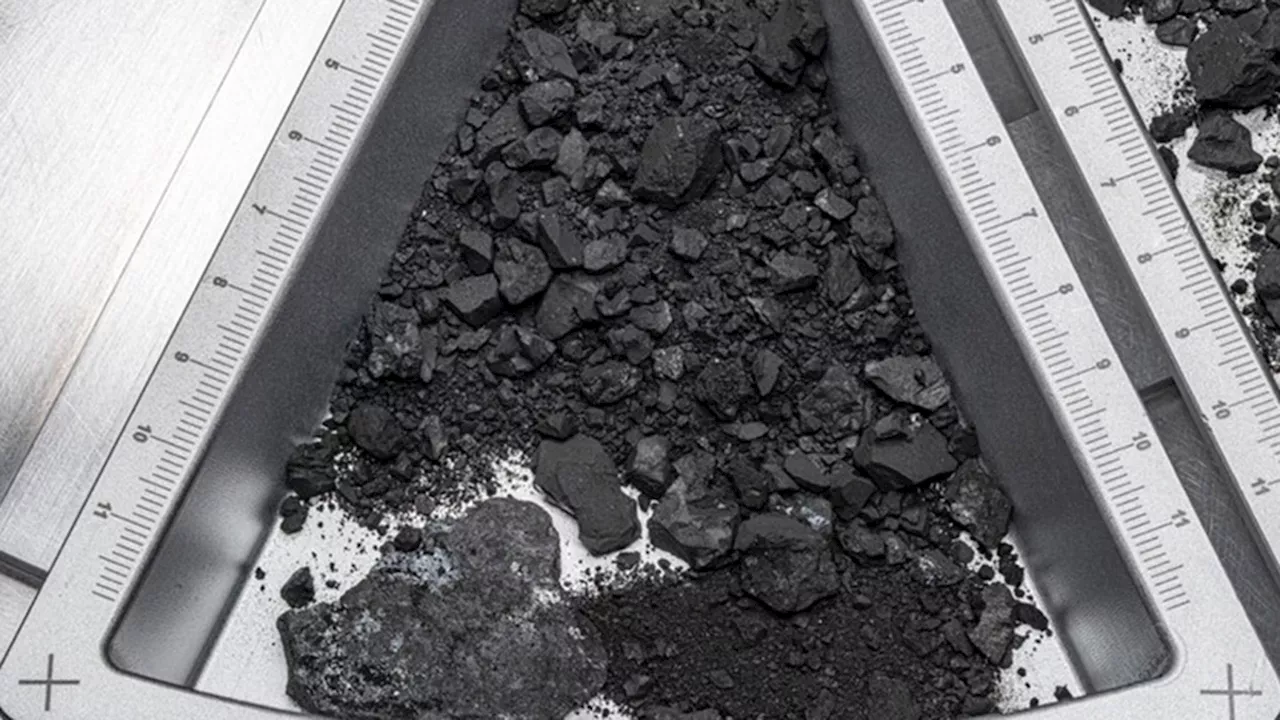Analysis of asteroid Bennu's sample reveals organic molecules, including those essential for life, suggesting the presence of primordial pools on its parent body. However, the lack of asymmetry in these molecules indicates that life may not have emerged in these ancient environments.
Scientists have discovered intriguing evidence about the early solar system within a sample of asteroid Bennu. This ancient space rock, which orbits primarily between Earth and Mars, is believed to have broken off from a larger body billions of years ago. Analysis of Bennu's sample reveals the presence of organic molecules, including the five nucleic acids that form DNA and RNA, and 14 out of the 20 amino acids essential for protein construction in living organisms.
Additionally, 19 other, less commonly used amino acids were found. The sample also contains a variety of salty minerals, suggesting the existence of ancient, evaporating liquid water pools on Bennu's parent body.These pools, likely formed around 4.6 billion years ago, may have provided the necessary conditions for the development of life's building blocks. However, while they contained the chemical precursors for life, they don't appear to have progressed to the stage of actual living organisms. The composition of Bennu's organic molecules offers clues about this apparent lack of life. Unlike living organisms on Earth, which predominantly utilize left-handed versions of these molecules, Bennu's sample contains equal amounts of both left- and right-handed versions of nucleic and amino acids.This asymmetry may indicate that the brine pools on Bennu's parent body were not conducive to life's emergence. Possible explanations include insufficient duration, incorrect temperature or pH levels, or even the absence of an atmosphere. The findings from Bennu provide valuable insights into the conditions present in the early solar system and the potential for life's origins. By studying these ancient remnants, scientists can piece together a more complete understanding of our cosmic history
ASTEROID BENNU ORGANIC MOLECULES LIFE's BUILDING BLOCKS EARLY SOLAR SYSTEM PRIMORDIAL POOLS
United States Latest News, United States Headlines
Similar News:You can also read news stories similar to this one that we have collected from other news sources.
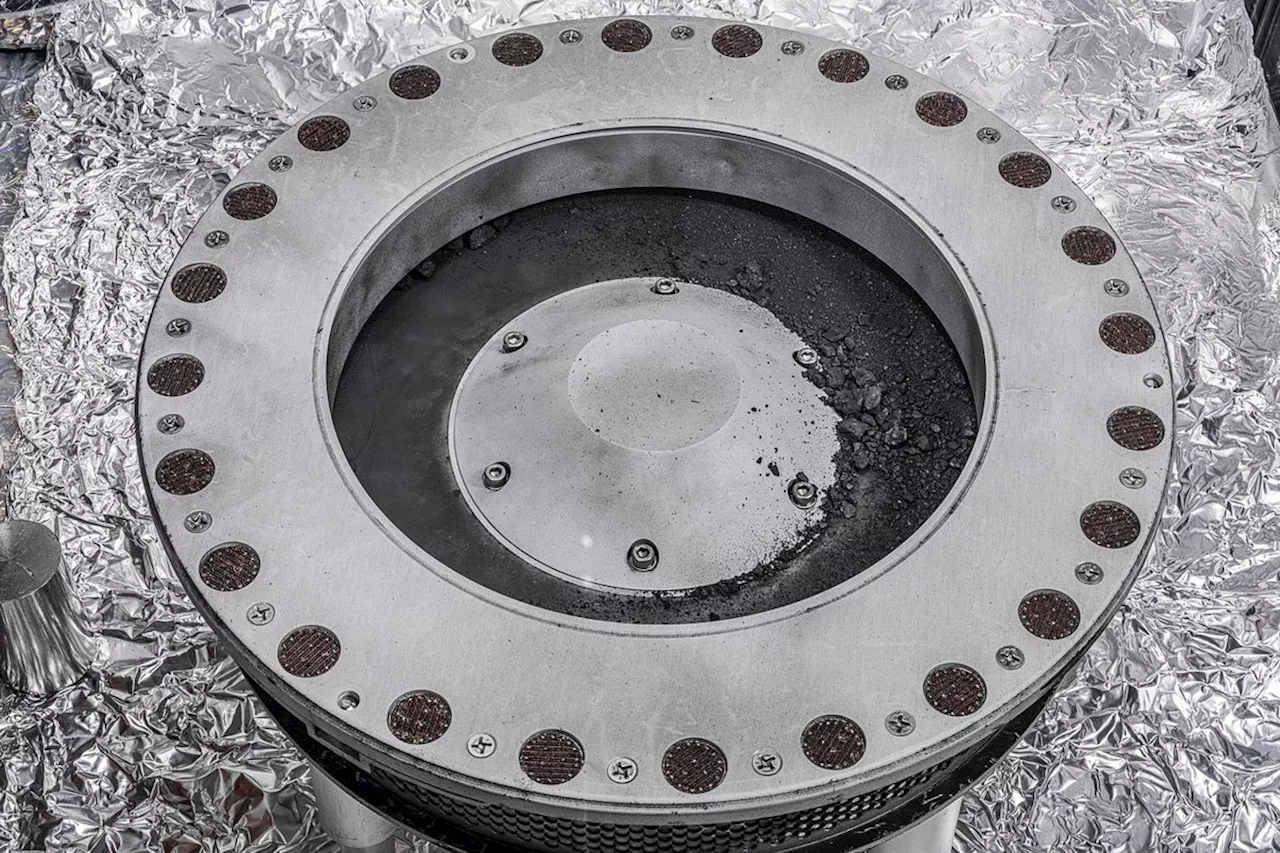 Bennu Asteroid Samples Reveal Widespread Building Blocks of Life in Early Solar System.Analysis of material from asteroid Bennu by NASA's OSIRIS-REx spacecraft reveals the presence of organic compounds, including amino acids and nucleotide bases, indicating that the fundamental building blocks of life were abundant in the early solar system.
Bennu Asteroid Samples Reveal Widespread Building Blocks of Life in Early Solar System.Analysis of material from asteroid Bennu by NASA's OSIRIS-REx spacecraft reveals the presence of organic compounds, including amino acids and nucleotide bases, indicating that the fundamental building blocks of life were abundant in the early solar system.
Read more »
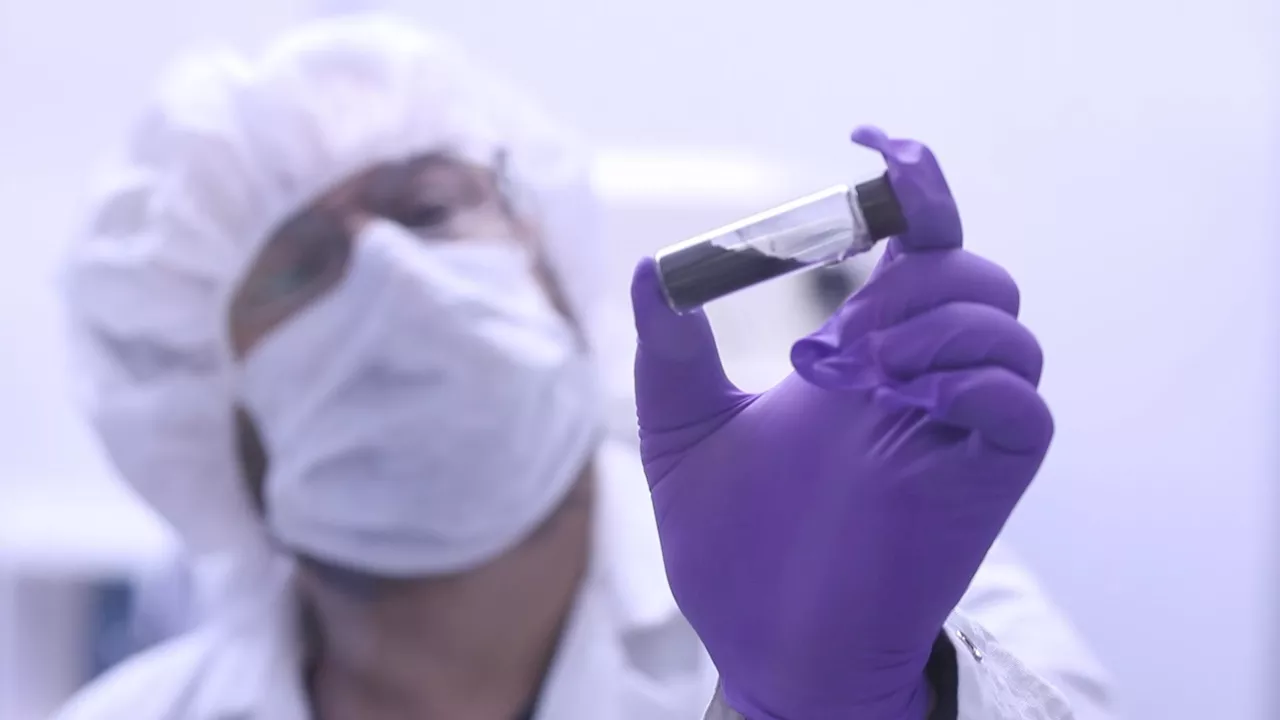 Asteroid Bennu Sample Reveals Molecules Key to Life and Evidence of Ancient SaltwaterNASA's OSIRIS-REx mission delivered samples from asteroid Bennu to Earth in 2023. Analysis of these samples revealed molecules essential for life on Earth, including amino acids and nucleobases, as well as evidence of ancient saltwater environments. These findings suggest that the conditions necessary for the emergence of life were widespread in the early solar system, increasing the odds of life forming on other planets and moons.
Asteroid Bennu Sample Reveals Molecules Key to Life and Evidence of Ancient SaltwaterNASA's OSIRIS-REx mission delivered samples from asteroid Bennu to Earth in 2023. Analysis of these samples revealed molecules essential for life on Earth, including amino acids and nucleobases, as well as evidence of ancient saltwater environments. These findings suggest that the conditions necessary for the emergence of life were widespread in the early solar system, increasing the odds of life forming on other planets and moons.
Read more »
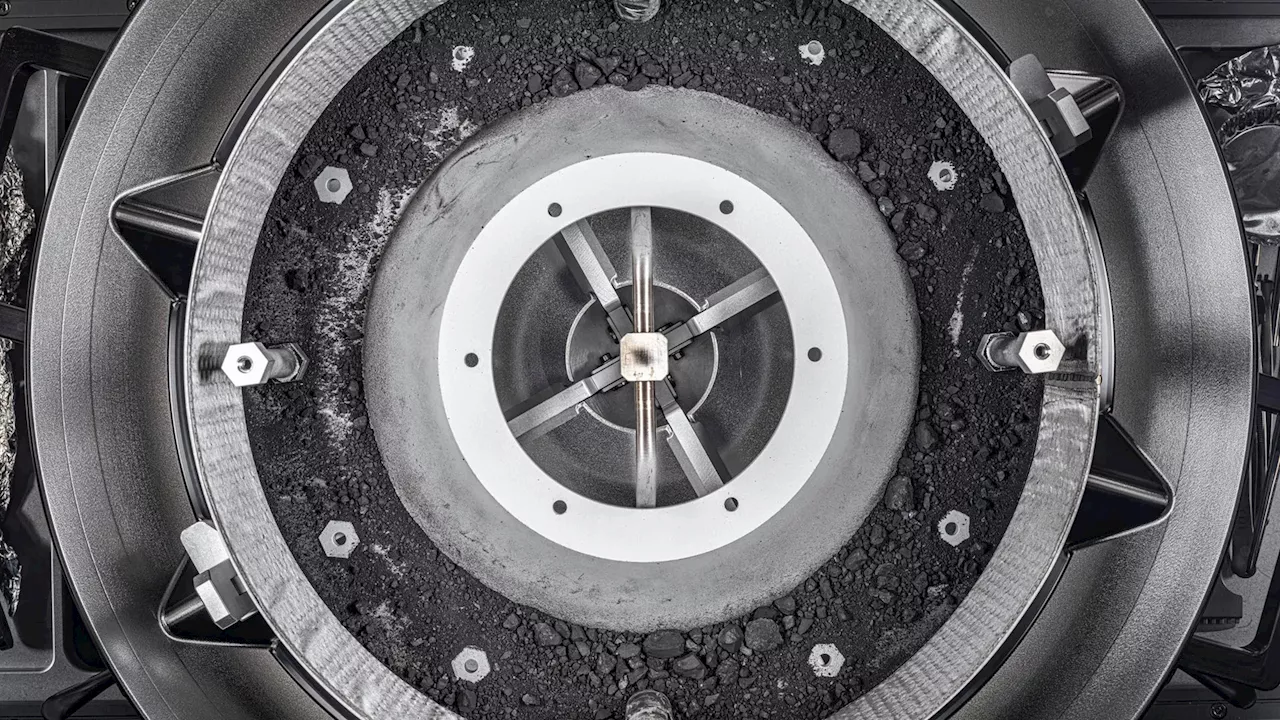 Surprise Discovery: Evidence of Liquid Water in Asteroid Bennu's PastA new study reveals the presence of compounds indicating the existence of liquid water pockets in Bennu's parent asteroid millions of years ago, raising exciting possibilities about the origins of life.
Surprise Discovery: Evidence of Liquid Water in Asteroid Bennu's PastA new study reveals the presence of compounds indicating the existence of liquid water pockets in Bennu's parent asteroid millions of years ago, raising exciting possibilities about the origins of life.
Read more »
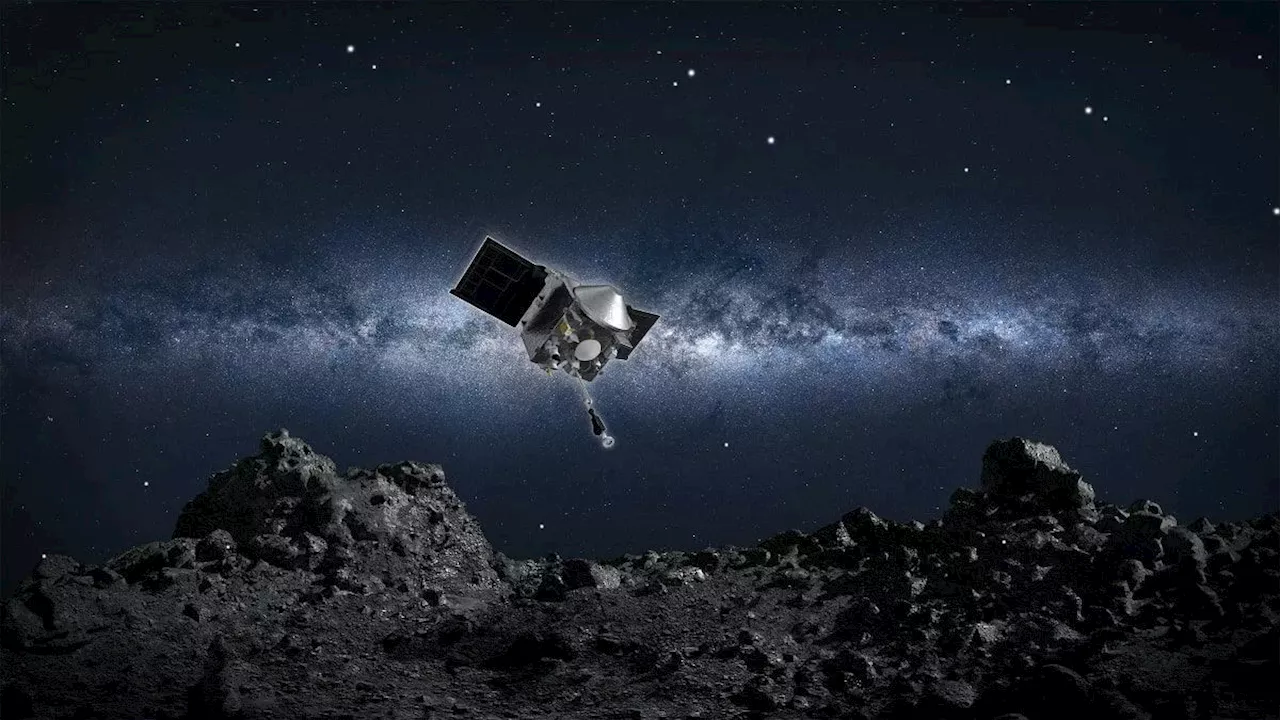 Asteroid Bennu Holds Clues to the Origins of LifeAnalysis of the OSIRIS-REx sample from asteroid Bennu reveals the presence of all five nucleobases, alongside minerals reminiscent of Earth's ancient lakebeds, suggesting the raw ingredients for life were present in the early solar system.
Asteroid Bennu Holds Clues to the Origins of LifeAnalysis of the OSIRIS-REx sample from asteroid Bennu reveals the presence of all five nucleobases, alongside minerals reminiscent of Earth's ancient lakebeds, suggesting the raw ingredients for life were present in the early solar system.
Read more »
 Asteroid Bennu Samples Reveal Clues to the Origins of LifeNASA's OSIRIS-REx mission has delivered samples from asteroid Bennu, which contain the building blocks for life and may have played a role in its emergence on Earth.
Asteroid Bennu Samples Reveal Clues to the Origins of LifeNASA's OSIRIS-REx mission has delivered samples from asteroid Bennu, which contain the building blocks for life and may have played a role in its emergence on Earth.
Read more »
 Motorola Razr 60 Ultra Certification Leak Hints at Early 2024 LaunchA recent leak suggests that Motorola's next foldable phone, the Razr 60 Ultra, might be launched earlier than expected. The device was spotted on India's BIS portal, indicating a potential release in March or April 2024. Although details about the phone's design and specs are scarce, rumors speculate about similar features to its predecessor, the Razr 50 Ultra.
Motorola Razr 60 Ultra Certification Leak Hints at Early 2024 LaunchA recent leak suggests that Motorola's next foldable phone, the Razr 60 Ultra, might be launched earlier than expected. The device was spotted on India's BIS portal, indicating a potential release in March or April 2024. Although details about the phone's design and specs are scarce, rumors speculate about similar features to its predecessor, the Razr 50 Ultra.
Read more »
